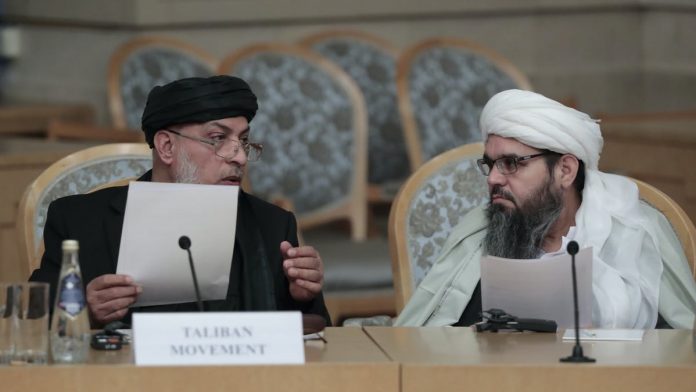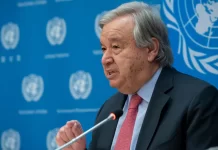The Taliban said Sunday they remain committed to peace talks but insisted a “genuine Islamic system” in Afghanistan was the only way to end the war and ensure rights — including for women. Talks between the militants and the Afghan government have been deadlocked for months and violence has surged across the country since May when the US military began its final withdrawal.
Fears are also growing that if the Taliban return to power they will reimpose their harsh version of Islamic law, under which girls were banned from school and women accused of crimes such as adultery were stoned to death in stadiums. Officials have raised concerns over the stalling negotiations and have said the Taliban has not yet submitted a written peace proposal that could be used as a starting point for substantive talks. Despite the rise in violence, Taliban co-founder and deputy leader Mullah Abdul Ghani Baradar said Sunday that the group was committed to the peace talks. Mullah Abdul Ghani Baradar, deputy chief for Taliban political affairs, outlined the assurance in a statement his office released to media, renewing a commitment to finding a negotiated settlement to the Afghan war. He said the only way to end the conflict in Afghanistan was to establish an Islamic system after the departure of all foreign forces. “A genuine Islamic system is the best mean for solution of all issues of the Afghans,” Baradar said.
His statement acknowledged the fears in Afghanistan and abroad about the kind of system that would emerge — and its impact on women — saying that fell “within the ambit of the intra-Afghan negotiations”. Baradar also assured that the rights of all Afghans including women would be accommodated in that system, according to “the glorious religion of Islam” and Afghan traditions. – ‘Taliban destroying Afghanistan’ – But many fear that the Taliban’s interpretation of rights will clash with the changes that have happened in Afghan society since 2001.






















